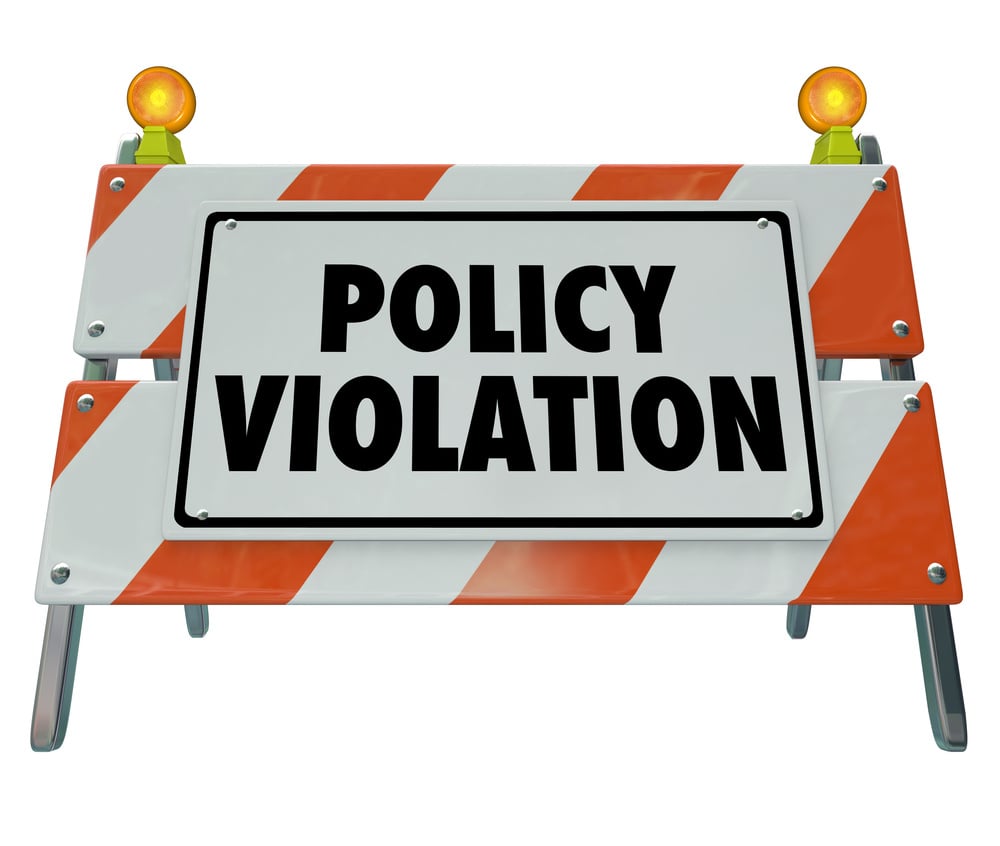As members of an HOA board, it is crucial to recognize the importance of consistently enforcing community rules and regulations. Inconsistencies in handling rule violations not only jeopardize the overall harmony and order within the community but also expose the board to potential legal liabilities. In this article, we’ll dive into the hazards associated with inconsistent rule enforcement and highlight the significance of fair and unbiased treatment for all community members.
Sacrificing Accountability
One common scenario that often arises within homeowners associations is the disparity in enforcing rules. Members may question why they receive violation letters while others seemingly get away with similar infractions. While members don’t know who has received notifications and who hasn’t, they make assumptions that they are being targeted. If there is a disparity, this inconsistency erodes trust and can lead to frustration and disputes among community residents.
Sense of Entitlement
To better understand the impact of inconsistent rule enforcement, let's draw a parallel to a situation we encounter on the roads. When a driver is pulled over for speeding, they cannot absolve themselves by pointing out other speeding vehicles. Similarly, community members must be held accountable for their own actions and violations, irrespective of how others may or may not be penalized.
For instance, let's imagine an HOA community where there is a strict rule against parking recreational vehicles (RVs) on the street. Emily, a diligent homeowner, abides by this rule and ensures her RV is parked off-site. However, she notices that several of her neighbors have been violating the same rule without facing any consequences. This inconsistency in enforcement creates frustration and a sense of unfairness among community members.
Emily decides to bring up the issue during an HOA board meeting, highlighting the importance of consistent rule enforcement. She points out that if the board fails to address the ongoing violations, it sends a message that some members are exempt from adhering to the rules. This not only undermines the integrity of the community but also creates an environment where certain individuals believe they can flout the rules without consequences.
By addressing this inconsistency and enforcing the RV parking rule uniformly, the board can ensure fairness and maintain the integrity of the community. It is crucial for HOA boards to understand that consistent enforcement is essential to upholding the principles and values of the association.
Legal Liabilities and Discrimination
Beyond the erosion of trust, inconsistent rule enforcement opens the door to potential legal liabilities for HOA boards. Discrimination claims can arise if it can be demonstrated that certain individuals or groups are treated preferentially while others face penalties. Such discrimination can result in costly lawsuits that tarnish the reputation of the association and deplete financial resources.
Risk Management and Fairness
Consistency is key when it comes to enforcing rules and regulations. HOA boards should strive to establish fair and transparent procedures for addressing violations, ensuring that no individual or group receives special treatment. By adhering to a consistent enforcement policy, the board not only minimizes the risk of discrimination lawsuits but also fosters a sense of unity, trust, and fairness among community members.
Best Practices for Rule Enforcement
To mitigate the hazards associated with inconsistent rule violations, HOA boards should consider implementing the following best practices:
- Clear and Well-Communicated Rules: Develop comprehensive and unambiguous community rules that are easily accessible to all members. Clear guidelines leave little room for misinterpretation and contribute to fair enforcement.
- Regular Inspections and Documentation: Conduct regular inspections to identify rule violations and maintain detailed records of all infractions observed. This documentation will serve as evidence of consistent enforcement practices.
- Timely and Uniform Enforcement: Respond promptly to reported violations and ensure that penalties or corrective actions are applied uniformly to all offenders. This consistency reinforces the board's commitment to fairness and equal treatment.
- Appeal and Review Mechanisms: Establish an appeal process for members who believe they have been treated unfairly. This allows for a fair review of individual cases and provides an opportunity to rectify any potential mistakes or oversights.
- Education and Awareness: Promote awareness among community members about the importance of adhering to the established rules. Regularly communicate updates, reminders, and explanations regarding rule enforcement to ensure everyone is informed and accountable.
Inconsistent rule enforcement within an HOA can have far-reaching consequences, including the erosion of trust, legal liabilities, and the potential for discrimination claims. HOA boards must prioritize fair and uniform treatment of all community members to maintain a harmonious living environment and protect the association from legal risks. By implementing clear policies, maintaining consistent enforcement practices, and fostering open communication, boards can ensure a fair and accountable community that benefits everyone involved.










